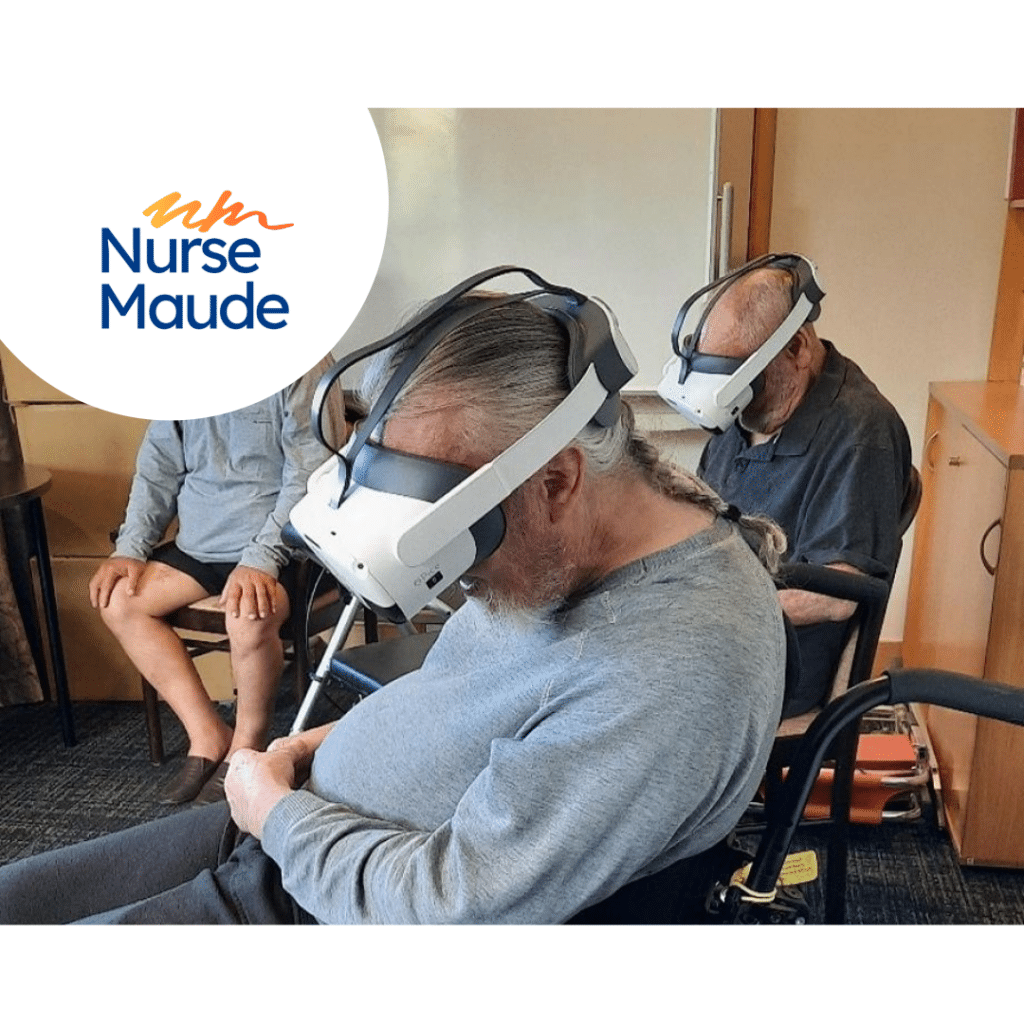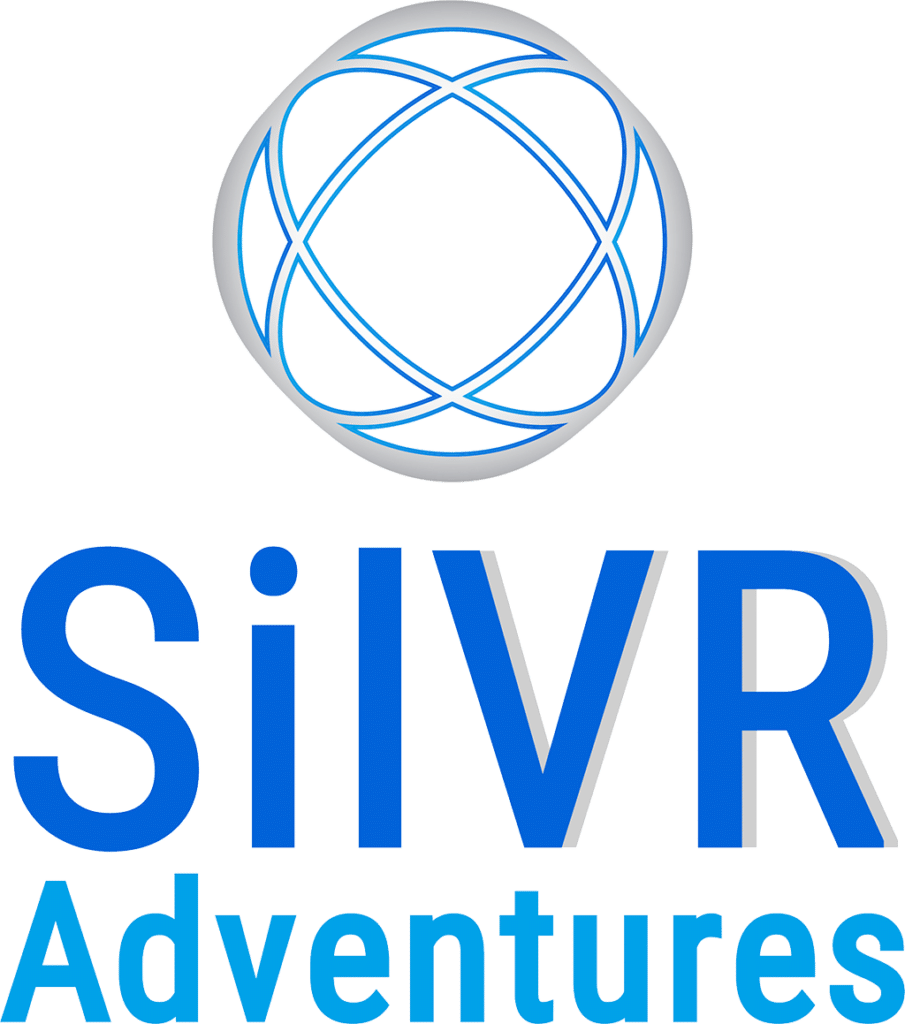Imagine sitting in the comfort of your living room and being able to travel to Italy, dive in the Great Barrier Reef, and ride on a rollercoaster. All of this (and more) is possible using the power of virtual reality (VR).
Virtual reality lets us be completely immersed in a different world – a “virtual” reality instead of our “real” world as we know it. But what is virtual reality, and how can it be used to benefit our daily life?
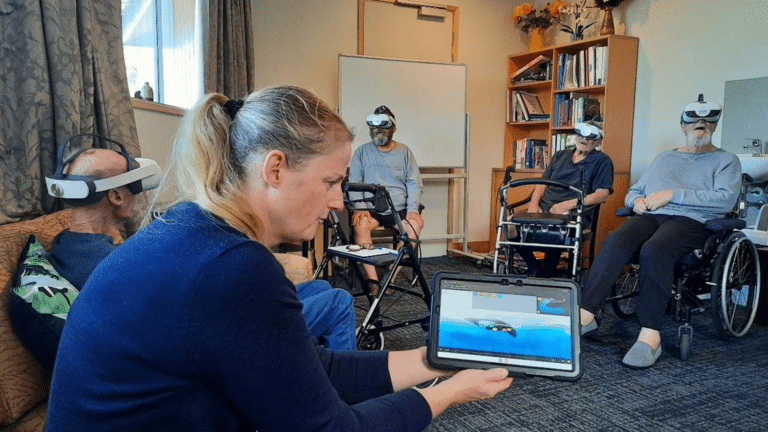
At Nurse Maude, swimming with whales is made possible with the power of virtual reality.
From left to right: Garry, Evette (Activities Coordinator), Bob, Jimmy, and Ron.
What is virtual reality?
Virtual reality is when you experience a 3D computer-generated world through a headset. It’s like watching a movie, except the screen completely surrounds you. In the virtual reality environment, no matter whether you look left, right, up, down, or spin completely around, the virtual world moves with and adapts to you. This makes it feel like your mind and body are truly in a different place.
Who can use virtual reality?
Virtual reality isn’t just for kids playing video games. An increasing number of companies are designing experiences tailored for seniors. At Nurse Maude, we have been using virtual reality with our care home residents since March 2023 with great success. Activities Coordinators Jill Clark and Evette Griffiths have been pleasantly surprised by everyone’s enthusiasm and willingness to give it a go. All participants have managed the headsets well during the weekly sessions without nausea. Sessions are completed sitting down, preventing dizziness and reducing risk of falling.
Why use virtual reality?
Increase social interaction: With five headsets, residents in a group session can see and hear the travel video at the same time, generating conversation and interaction over a shared experience. Participants often open up and reminisce about cherished memories such as their honeymoon in Australia or trips to the Colosseum in Rome.
Research shows that virtual reality can promote conversation and strengthen bonds between residents, staff and family.
Jill and Evette recall one resident with dementia who enjoyed the session so much that she remembered the next morning to tell her family about it. Instead of staying in her room, the resident struck up conversations with other residents and staff. “She kept saying it was amazing.”
Experience new things: When Service Innovation Analyst Jonathan Sibbles implemented the virtual reality program, he thought the travel experiences through calm landscapes would be the most popular, but soon realised that residents were itching for a bit of a thrill.
Jonathan says, “I offered them the opportunity to do a skydive,
and they loved it!”
Virtual reality gives residents the opportunity to tick experiences off their bucket list, such as going on a helicopter and sitting with gorillas in Africa. Jimmy, a resident of the care home, says he most enjoys learning about different cultures and seeing things he otherwise would never get to see in person.
Trying new and meaningful activities can help with alleviating boredom and loneliness, says Jonathan. “When you’re stuck inside the four walls, virtual reality can take you outside.” Christine, another resident agrees: “it’s like travelling without a passport.”
Improve well-being: Besides increasing social interaction (and just being plain fun), research shows that virtual reality can improve balance, memory and emotional well-being.
One study found that after a 6-week virtual reality travel programme, participants reported reduced anxiety and fatigue, and improved quality of life.
Being immersed in a different world may promote relaxation and even distraction from physical pain.
Link: Research demonstrates VR Therapy Benefits for Cognitive and Emotional Well-Being.
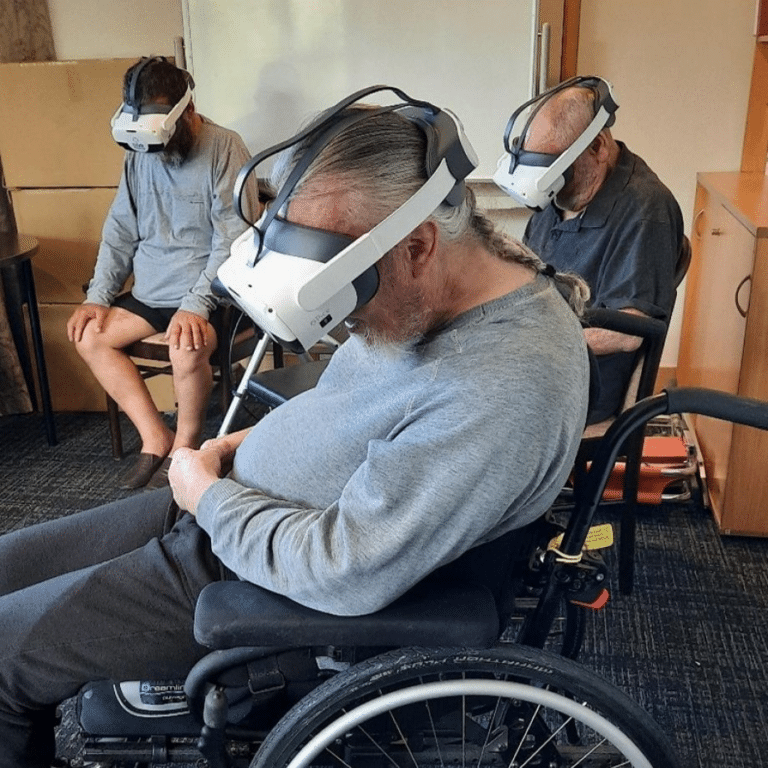
However, Jill and Evette say that it’s important to be aware that some experiences can “bring up emotions that they weren’t expecting.” such as grief associated with realising one’s physical limitations around travel. Keeping VR sessions short and with small groups means that staff can quickly adapt the experiences to suit the person’s individual needs and also support residents to process their emotions.
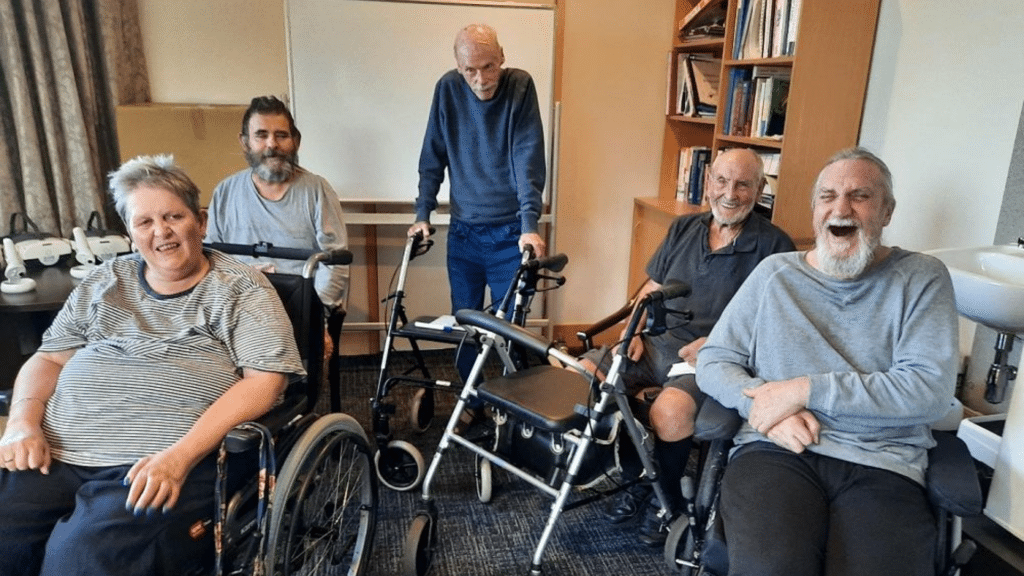
As with any technology, virtual reality needs to be tailored to each person’s interests and abilities for it to be successful. When used thoughtfully, virtual reality has the potential to be an invaluable tool for strengthening social, physical, and emotional well-being.
SilVR Adventures is proud to partner with Nurse Maude, New Zealand’s oldest and most respected aged care provider. Together, we are redefining care by empowering older adults to stay connected, engaged, and inspired through immersive VR experiences. Our collaboration celebrates each resident’s unique journey, bringing joy, independence, and meaningful moments to aged care.
This article was published in Age Concern Canterbury’s winter 2024 edition of Keeping On which you can read in full here.

